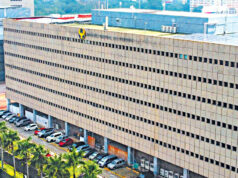FITCH SOLUTIONS Macro Research said the government’s plan to impose price controls on a list of widely-used drugs will be positive for the market over the long term but will likely threaten the operations of multinational drugmakers, whose business models are based on expensive medicines under patent protection.
Fitch Solutions said the price controls will likely restrict the growth of the pharmaceutical market over the short term.
“Pressure on pharmaceutical prices will continue to threaten the operations of multinational drugmakers in the Philippines. The introduction of a maximum retail price scheme will exacerbate a tough environment, with price controls being applied at all stages of supply chain,” according to a commentary published by Fitch Solutions, a part of Fitch Group.
However over the longer term, it said the price controls will likely be “positive for the market” given the expected increase in sales due to higher demand and greater competition among suppliers.
“If patients and other payers are attracted to the new lower-priced pharmaceuticals, greater demand should attract more suppliers to the Philippine market, which is often overlooked by firms seeking opportunities in Asia Pacific,” it said.
Fitch Solutions said that the proposed scheme will likely affect large drugmakers in Europe and US the most since the price controls will mainly be implemented on newly-introduced products for the treatment of chronic diseases.
It said the scheme may also affect distributors, pharmacies and private hospitals, citing the Pharmaceutical Healthcare Association of the Philippines’ (PHAP) warnings of the negative impact on retailers. It said it may even push manufacturers to rethink their plans to launch new medicines in the Philippine market.
“It could also lead to pharmaceutical companies withdrawing existing products, which would harm the public,” it said.
It said a policy of generics substitution will “over the longer term, as is common throughout the Asia region, (lead to decelerating) market growth… due to increasing cost-containment and initiatives to improve the cost-efficiency of pharmaceutical spending.”
“An increasing focus on cost-effective expenditure will further promote generic substitution rhetoric. As such, generic medicine sales growth will outperform overall market growth over the long term,” it added.
The government is looking to implement a Maximum Drug Retail Price (MDRP) scheme that aims to impose price controls on widely-used drugs.
In an interview with ABS-CBN aired Monday, President Rodrigo R. Duterte said he will sign a draft executive order covering the MDRP scheme.
The Department of Health (DoH) released in September a proposed list of 120 drugs covered by MDRP, which will lead to “a mean price reduction of 56% from the prevailing market.”
Included in the list are drugs addressing hypertension, diabetes, cardiovascular disease, chronic lung diseases, neonatal diseases and major cancers, as well as diseases that have high treatment costs, including chronic renal disease, psoriasis, and rheumatoid arthritis.
The DoH hopes to lower prices of some medicines through the scheme but a group of pharmaceutical firms said the government can reduce prices by buying in bulk and selling them through state hospitals, instead. — Beatrice M. Laforga



